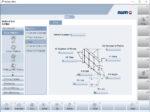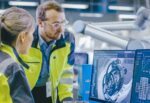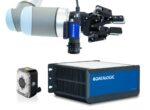AI petri dish scanner sold into Europe
LBT Innovations has made its first international sale of an artificial intelligence instrument, which it claims could revolutionise the global medical laboratory industry. Based in Adelaide, South Australia, health technology company LBT Innovations told investors this morning that it had made its first overseas sale of the APAS Independence instrument, which scans the contents of petri dishes and uses an algorithm to detect bacterial colonies from medical samples. The technology incorporates computer vision to hasten the time required to detect infections in samples from patients. LBT Innovations CEO Brett Barnes told local news site InDaily the technology had the potential to automate a process that is currently conducted manually at medical labs across the globe, and that it is faster and more accurate than microbiologists at making clinical diagnoses based on the samples. The sale to German clinical laboratory Labor Dr Wisplinghoff, announced on the ASX today, is only the company’s second, bringing in about $330,000. But Barnes said there was a potential demand for the product spanning about 2000 laboratories in Australia, the United Kingdom, the United States and Germany, and that this relatively small first international sale was an indication of things to come. “It’s a big, global market opportunity for us,” said Barnes. “As a singular transaction … what it really signifies (is) confidence that the technology is being adopted. “We’re at the start of a global commercialisation.” Barnes said that the technology, developed with the University of Adelaide in 2015, eliminated one of the more mundane and tedious processes from the daily workflow of a microbiologist. “This isn’t a play of putting a profession out of work,” he said. “It’s an efficiency gain (that) frees up microbiologists for more value-add activities.” He added that a clinical trial involving 10,000 patients had demonstrated the technology’s accuracy and speed.










